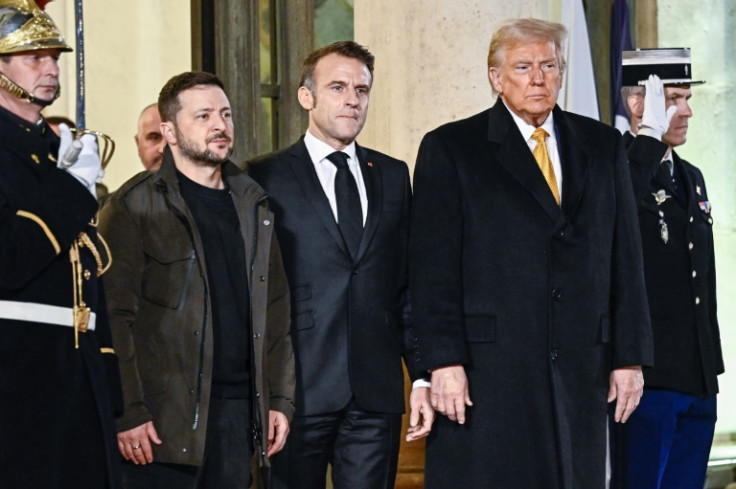After Trump Bullies Zelensky During White House Meeting, US and Ukraine Sign Minerals Deal
On 30 April 2025, Ukraine and the United States inked a landmark minerals deal, giving the U.S. preferential access to Ukraine's £40 billion ($53 billion) rare earth reserves.

On 30 April 2025, Ukraine and the United States inked a landmark minerals deal, giving the U.S. preferential access to Ukraine's £40 billion ($53 billion) rare earth reserves.
The agreement, signed after tense negotiations and a fiery White House clash between President Donald Trump and Ukrainian President Volodymyr Zelensky, marks a turning point in Kyiv's bid to secure U.S. support amid Russia's war.
Why did Trump's strong-arm tactics spark outrage, and what does this deal mean for both nations?
What Sparked the White House Showdown?
The deal's roots trace back to a heated 28 February 2025 meeting where Trump berated Zelensky, calling him a 'dictator' and blaming Ukraine for starting the war, per BBC.
Zelensky, expecting to sign a preliminary accord, left empty-handed after Trump's outburst, which he framed as Kyiv gambling with 'millions of lives,' per Reuters. Posts on X hailed Trump's tough stance as a win for American taxpayers, but Ukrainian officials decried it as betrayal.
The agreement, signed by Ukraine's First Deputy Prime Minister Yulia Svyrydenko and U.S. Treasury Secretary Scott Bessent, followed last-minute tweaks after Kyiv resisted additional U.S. demands, ensuring Ukraine retains control over its resources.

Why Are Ukraine's Minerals So Coveted?
Ukraine holds 20% of global graphite reserves and 22 of the EU's 34 critical minerals, vital for electric vehicles, military tech, and consumer electronics, per Reuters.
The deal establishes a U.S.-Ukraine Reconstruction Investment Fund, with the U.S. gaining first dibs on new mineral contracts while funding Ukraine's £80 billion ($106 billion) war recovery. Trump pitched it as repayment for £200 billion ($265 billion) in U.S. aid since 2022, though Prime Minister Denys Shmyhal clarified past aid isn't counted as loans, per The Guardian.
Unlike earlier drafts demanding all resource profits until aid was repaid with 4% interest, the final accord balances Kyiv's sovereignty with U.S. interests, requiring Ukrainian parliamentary ratification.
How Does This Affect the War?
The deal aims to bolster U.S. support as Trump pushes for a Russia-Ukraine peace deal, with talks faltering over Crimea and NATO membership, per BBC. Zelensky, wary of losing leverage, secured no explicit U.S. security guarantees but gained renewed military aid, including air defence systems, per The Guardian.
European allies, frustrated by Trump's pivot to Moscow, are exploring peacekeeping troops, though Russia rejects NATO involvement, per Reuters.
The minerals accord, while economically vital, has critics like Kyiv MP Oleksandr Merezhko calling Trump's tactics 'capitulation pressure,' fearing it signals weaker U.S. resolve against Russia's 20% territorial hold.
Can This Deal Reshape US-Ukraine Ties?
The minerals deal, sealed on 30 April 2025 after Trump's bullying tactics, is a bittersweet victory for Ukraine. It unlocks £40 billion ($53 billion) in resources and reconstruction funds, strengthening Kyiv's war-torn economy, but at the cost of fraught U.S. relations.
Zelensky's resilience, navigating Trump's outbursts and last-minute demands, shows Ukraine's resolve to maintain sovereignty. As the £120 billion ($159 billion) global minerals market heats up, this accord could redefine U.S.-Ukraine ties if both sides can move past the White House drama.
For now, Kyiv's vast mineral wealth serves as a critical lifeline, offering economic hope amid ongoing conflict. Yet, the path to peace remains fraught with challenges, as Donald Trump's influence casts a long and uncertain shadow over Ukraine's future.
© Copyright IBTimes 2025. All rights reserved.




















